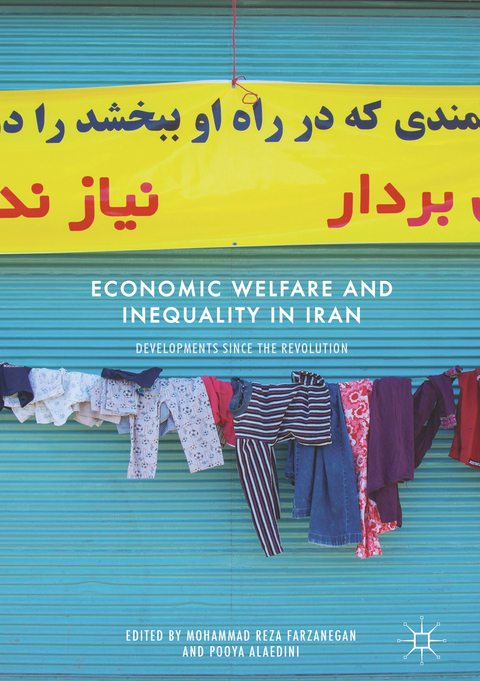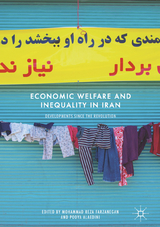Economic Welfare and Inequality in Iran
Palgrave Macmillan (Verlag)
978-1-349-95024-9 (ISBN)
Mohammad Reza Farzanegan is Professor of Economics of the Middle East at the Center for Near and Middle Eastern Studies, Philipps-Universität Marburg, Germany. He is affiliated with MACIE (Marburg), CESifo (Munich) and ERF (Cairo). His recent publications have appeared in the Journal of Peace Research, International Tax and Public Finance, and World Development. Pooya Alaedini is Associate Professor at the Department of Social Planning, University of Tehran, Iran. He has served as an international development consultant for UN agencies, the World Bank, and national organizations. His research has focused on major urban, regional, and social disparity issues as well as evaluation of development programs. Contributors Hamid Reza Ashrafzadeh, Institute for Trade Studies and Research, IranMitra Babapour, Freelance Researcher, IranNadereh Chamlou,International Development Adviser, USASajjad Faraji Dizaji, Tarbiat Modares University, IranHassan F. Gholipour, Swinburne University of Technology, AustraliaMohamad Mohammadi Khabbazan, University of Hamburg, GermanyMajid Koosheshi, University of Tehran, IranJeremy Nguyen, Swinburne University of Technology, AustraliaHossein Raghfar, Alzahra University, IranHossein Sadeghi, Tarbiat Modares University, Iran
1. Iran's Post-revolutionary Social Justice Agenda and Its Outcomes: Evolution and Determinants of Income Distribution and Middle-Class Size.- 2. Poverty, Inequality, and Income Mobility in Iran: A Pseudo-Panel Approach.- 3. Oil rents, Political Institutions, and Income Inequality in Iran.- 4. Housing Costs and Inequality in Post-Revolutionary Iran.- 5. Gender Inequality and Income Inequality in Iran.- 6. Aging and Gender Inequality in Contemporary Iran.- 7. Effect of Oil Sanctions on Household Welfare in Iran: New Evidence from a CGE Model.- 8. Household Welfare in Iran under Banking Sanctions: From Open Economy toward Autarchy.
| Erscheinungsdatum | 12.01.2017 |
|---|---|
| Zusatzinfo | 4 Illustrations, color; 35 Illustrations, black and white; XVI, 237 p. 39 illus., 4 illus. in color. |
| Verlagsort | Basingstoke |
| Sprache | englisch |
| Maße | 148 x 210 mm |
| Themenwelt | Geschichte ► Teilgebiete der Geschichte ► Wirtschaftsgeschichte |
| Wirtschaft ► Volkswirtschaftslehre ► Makroökonomie | |
| ISBN-10 | 1-349-95024-6 / 1349950246 |
| ISBN-13 | 978-1-349-95024-9 / 9781349950249 |
| Zustand | Neuware |
| Haben Sie eine Frage zum Produkt? |
aus dem Bereich




